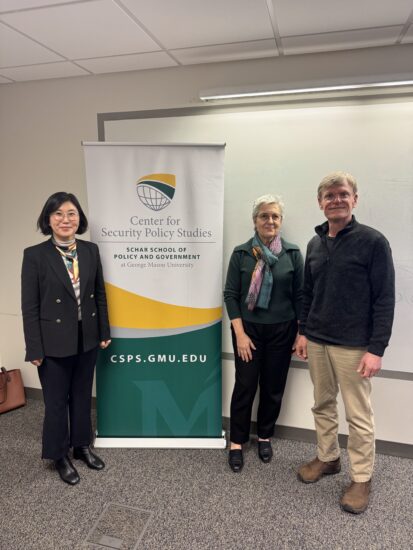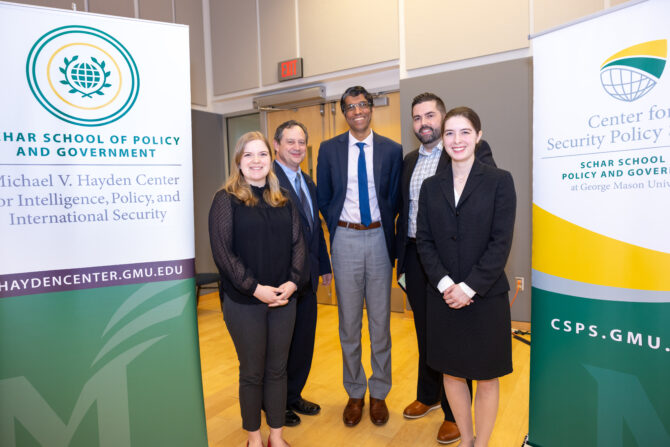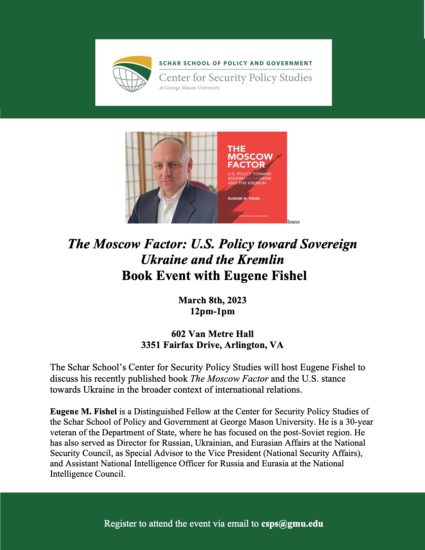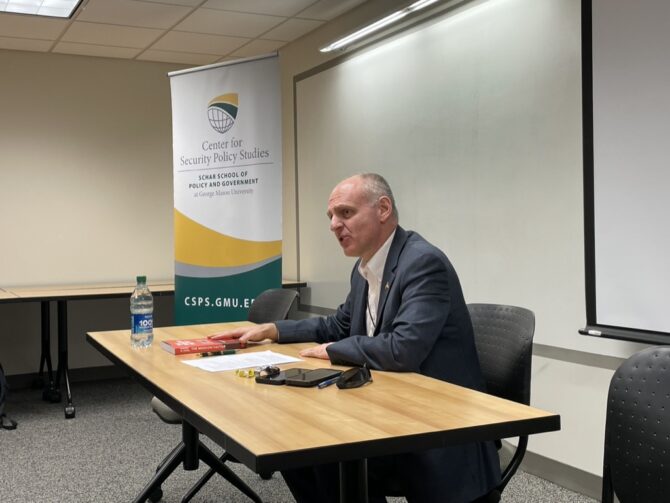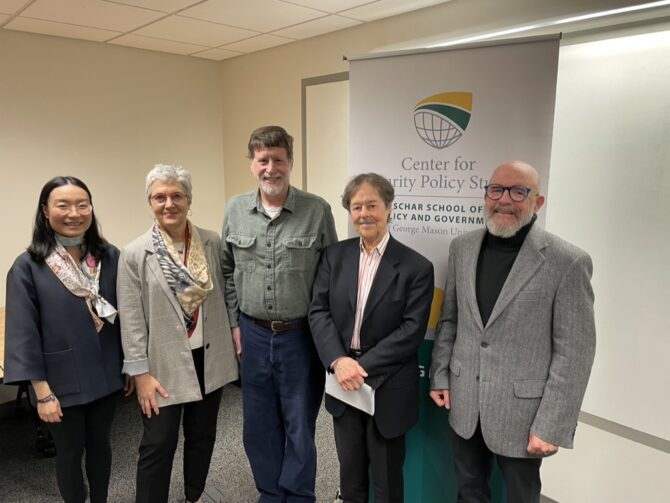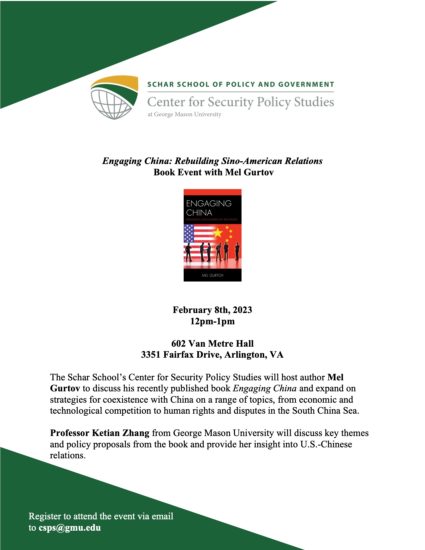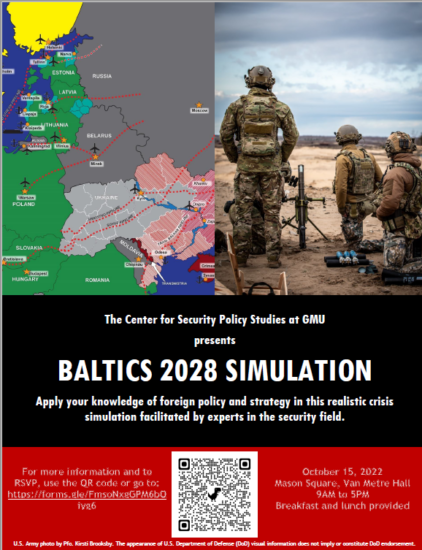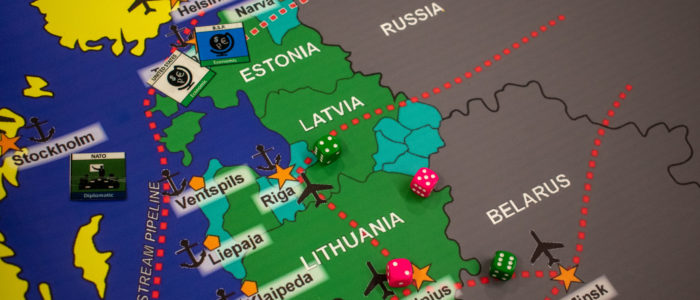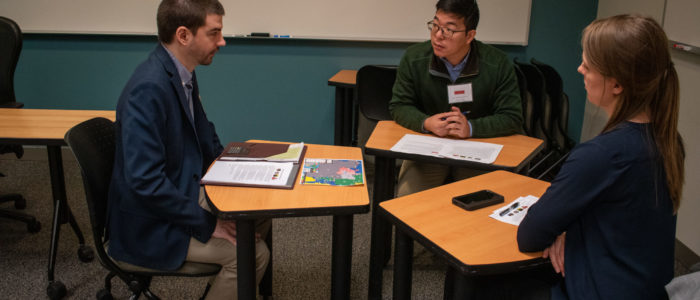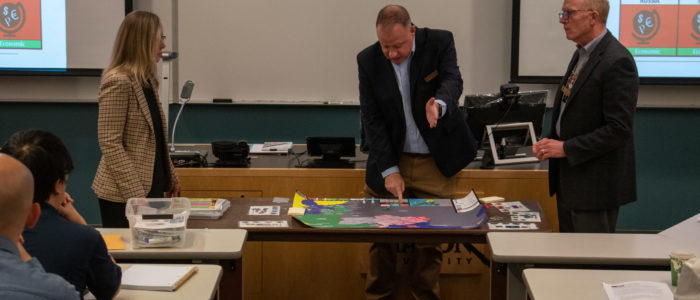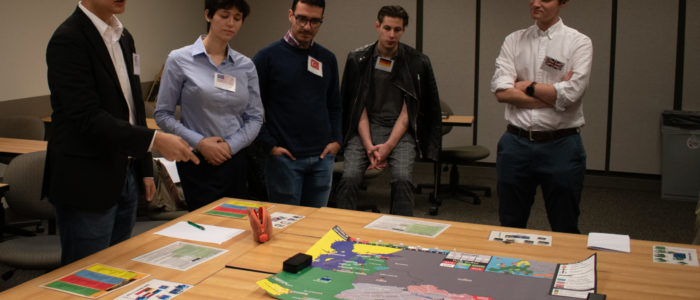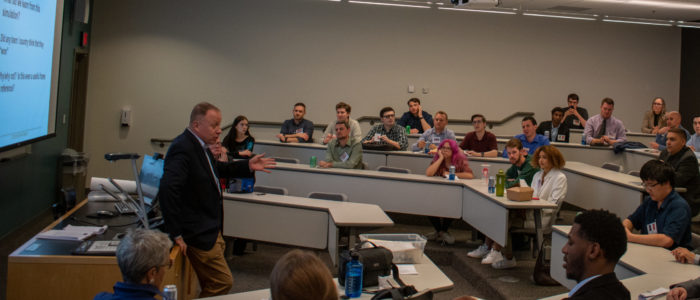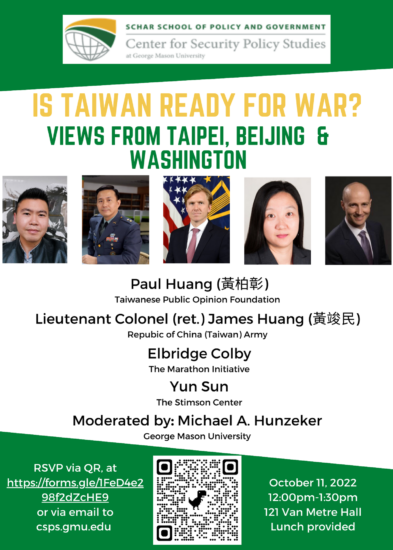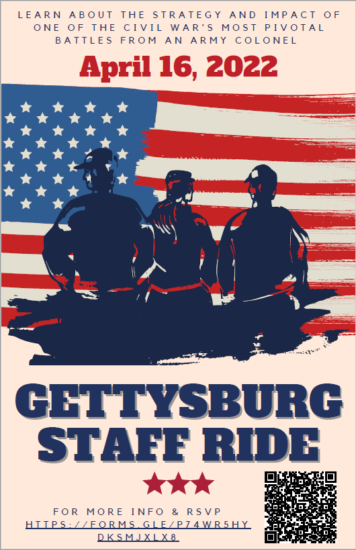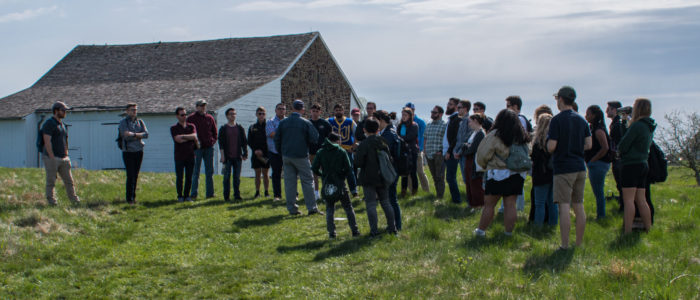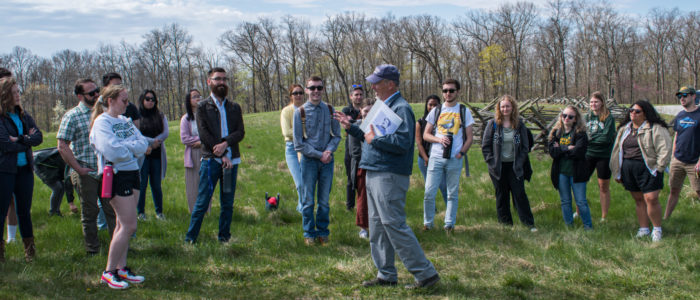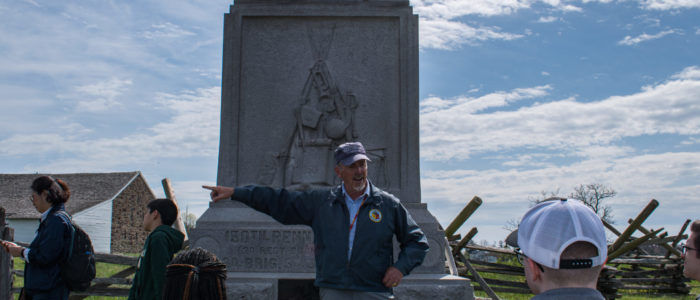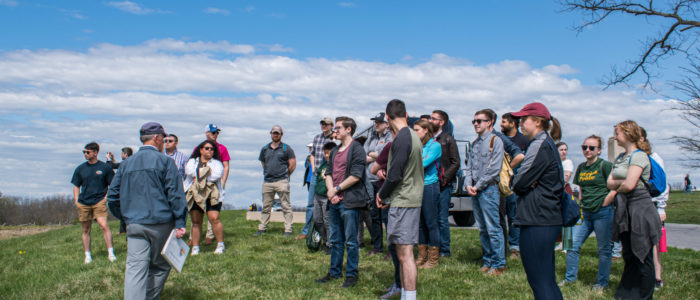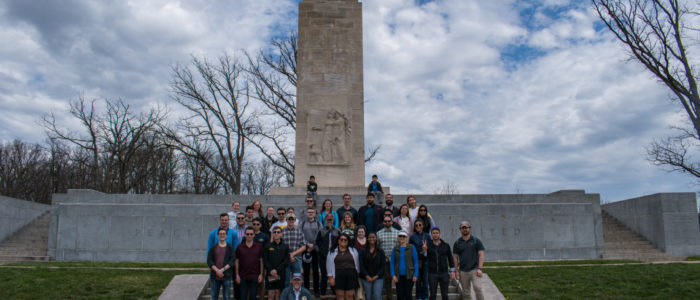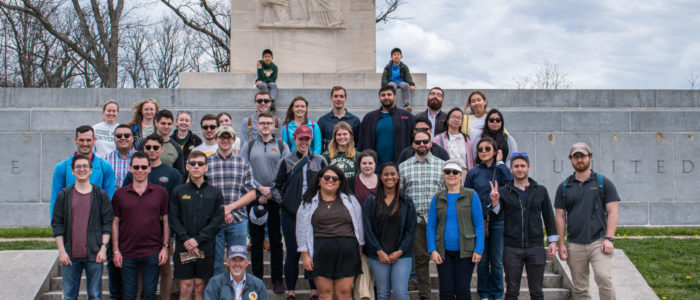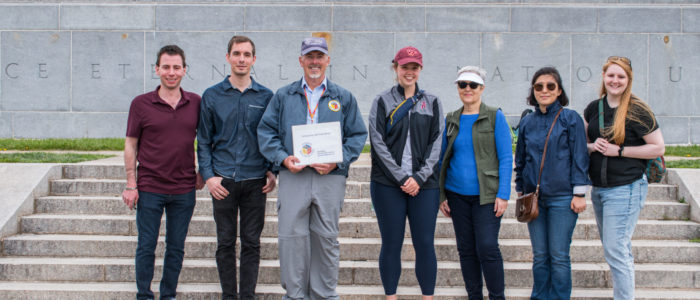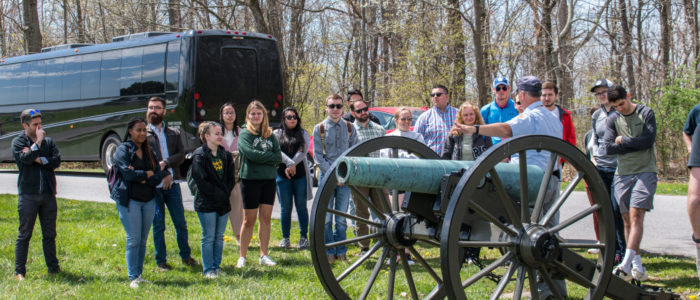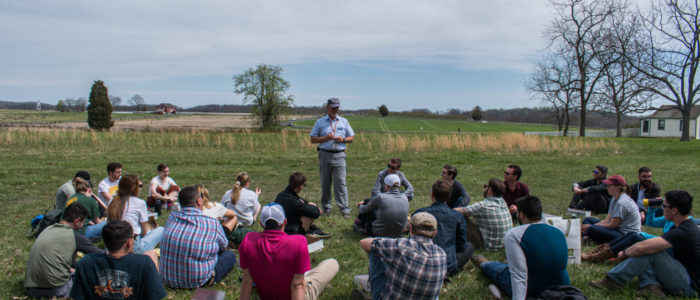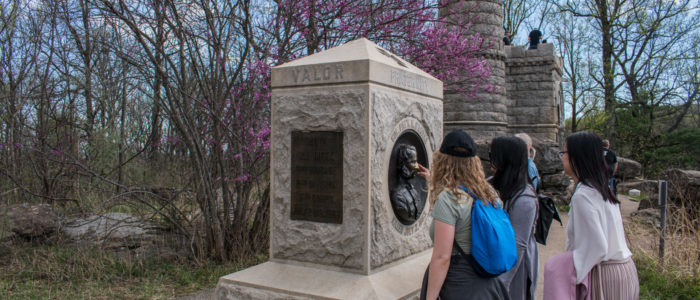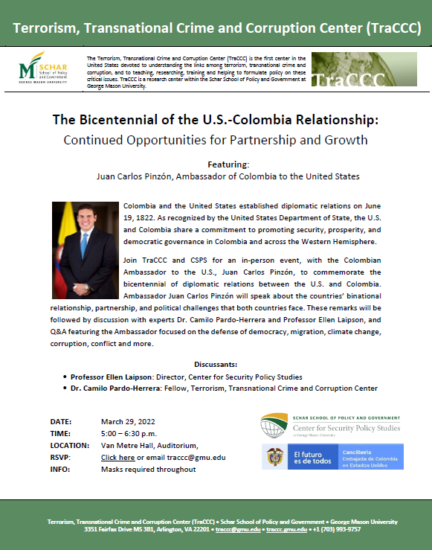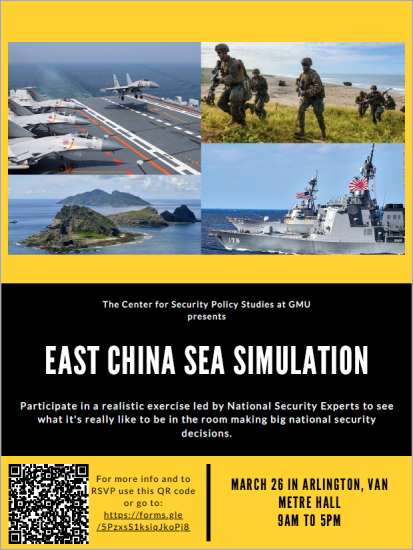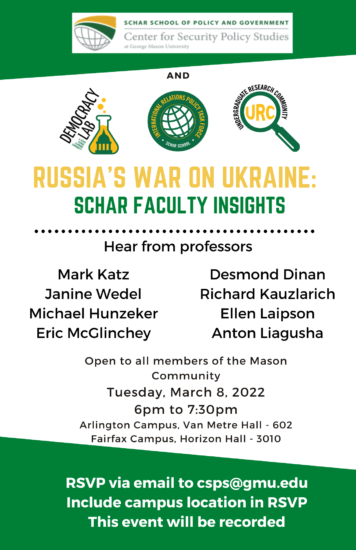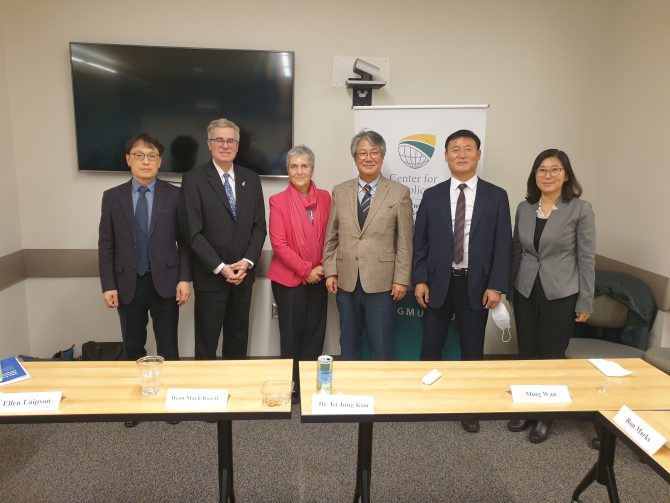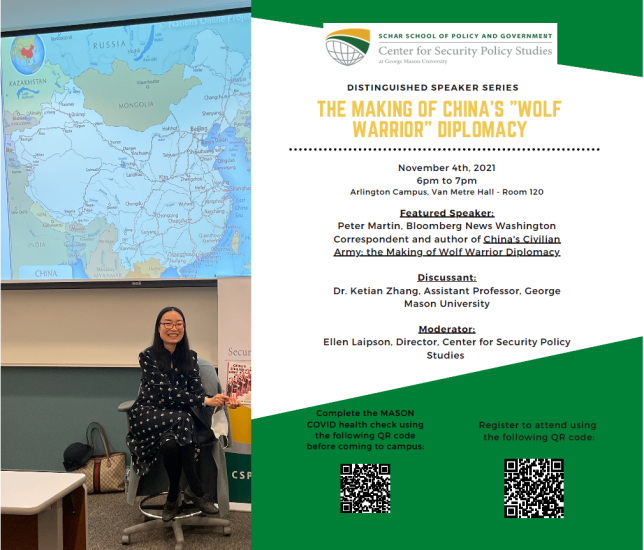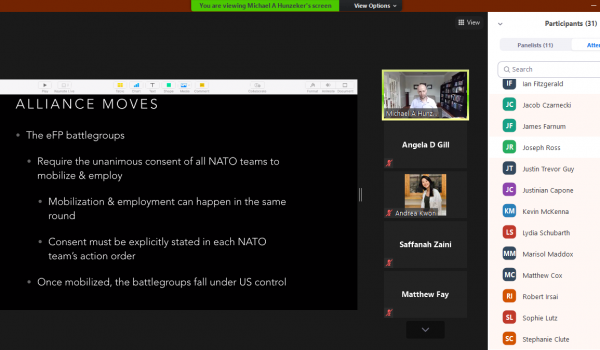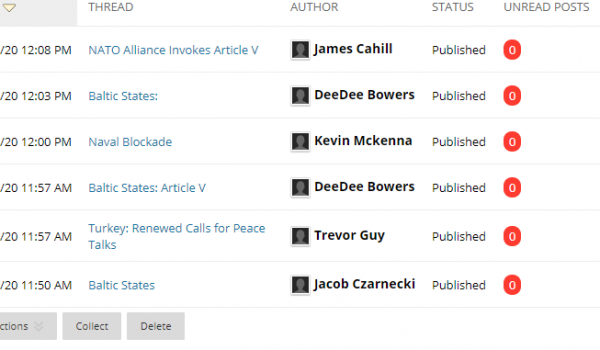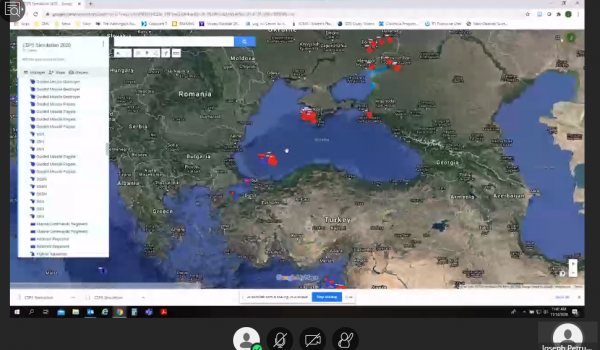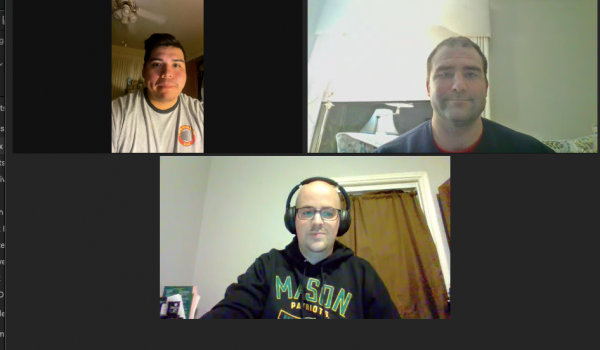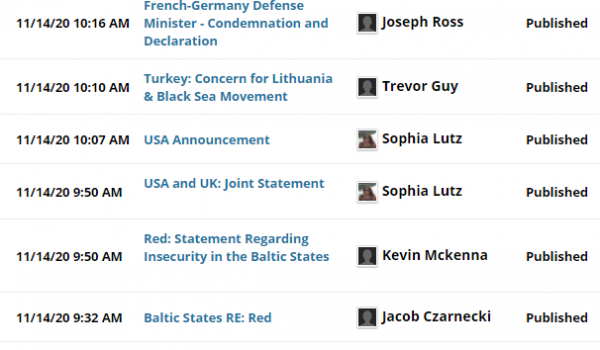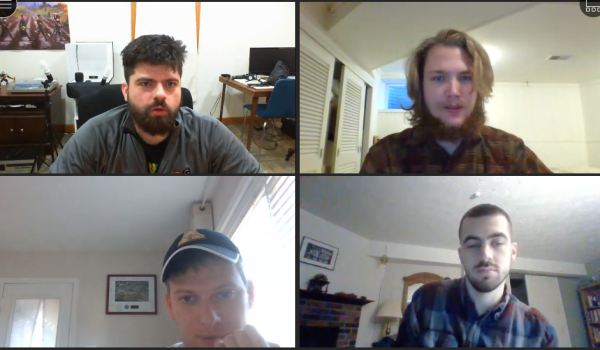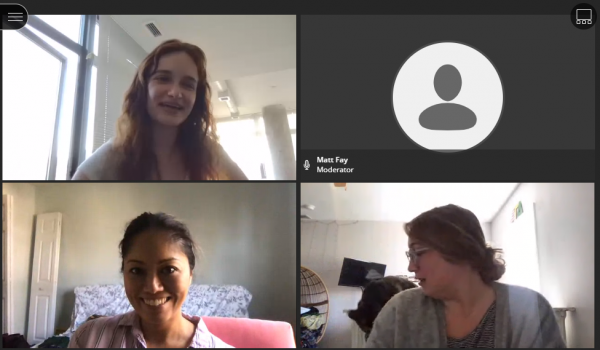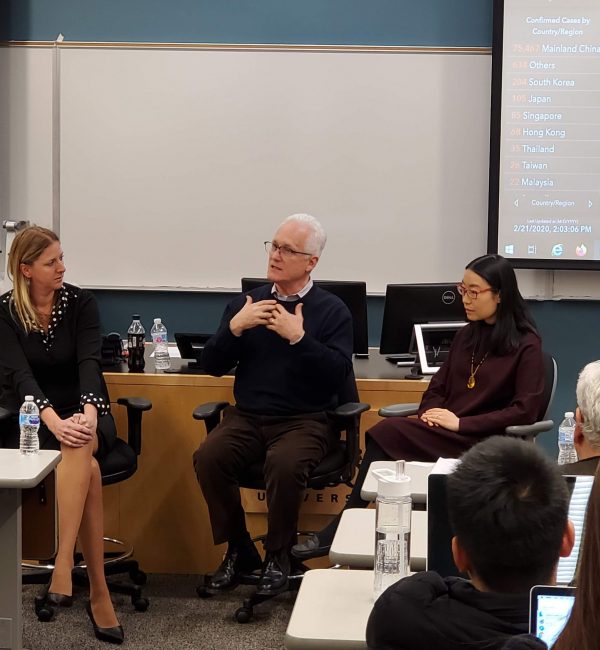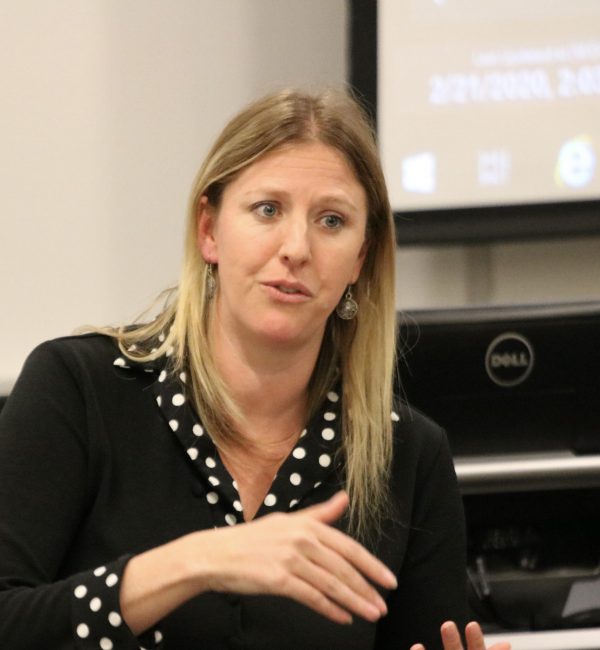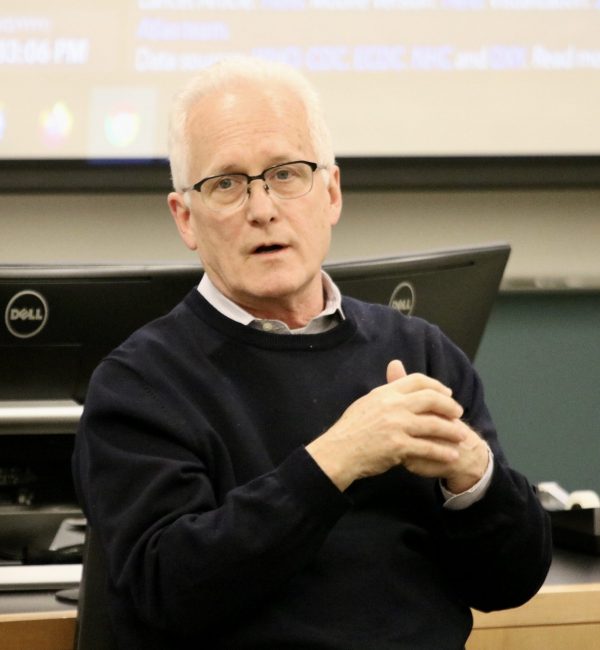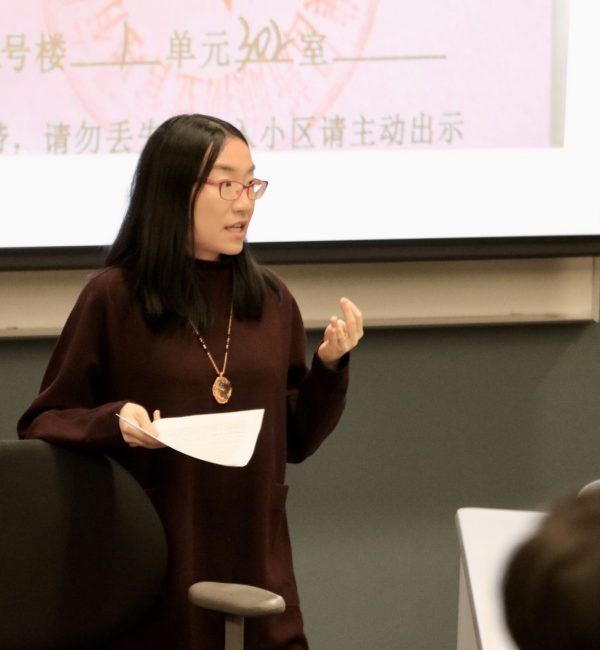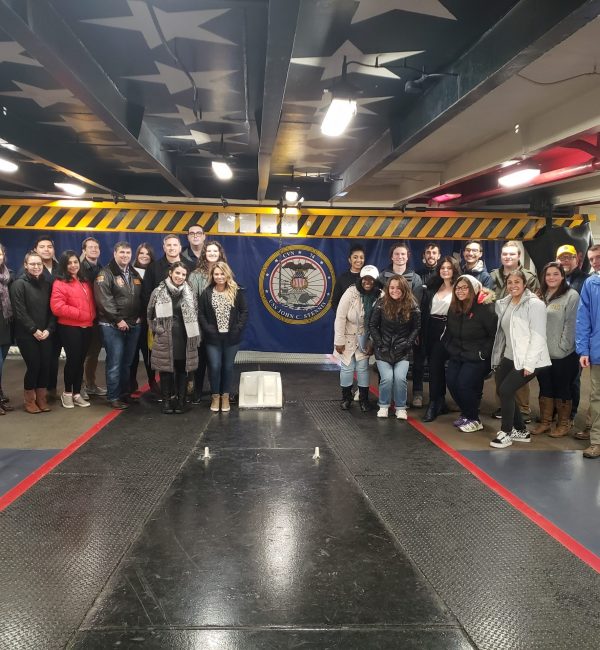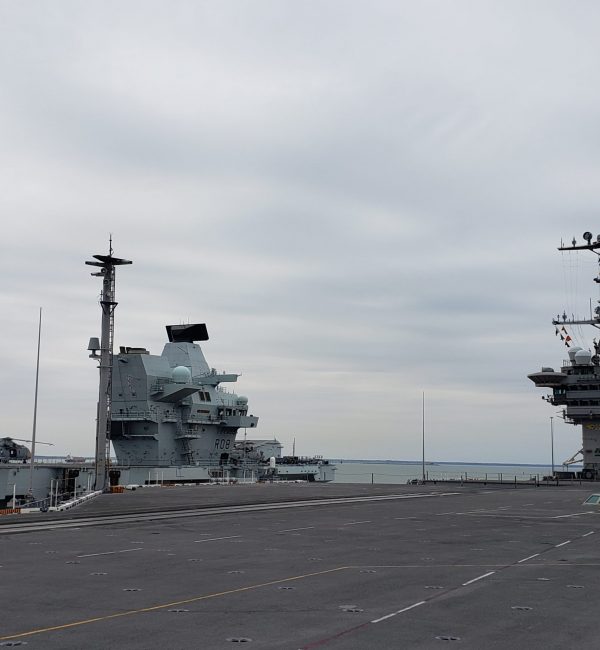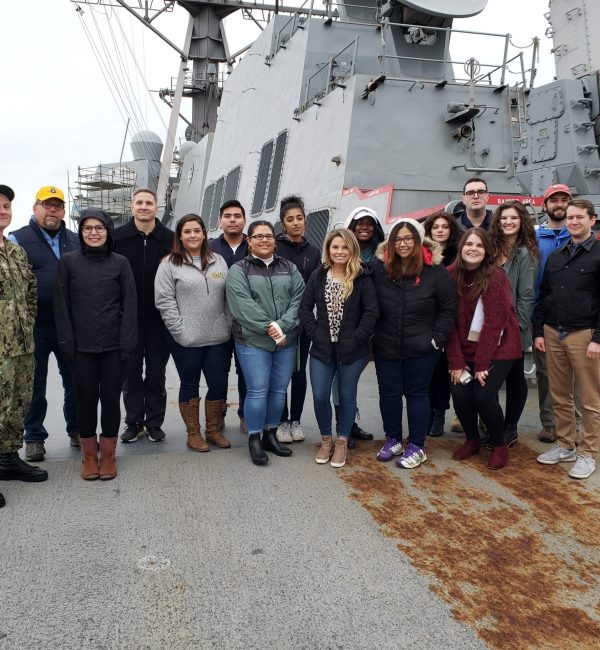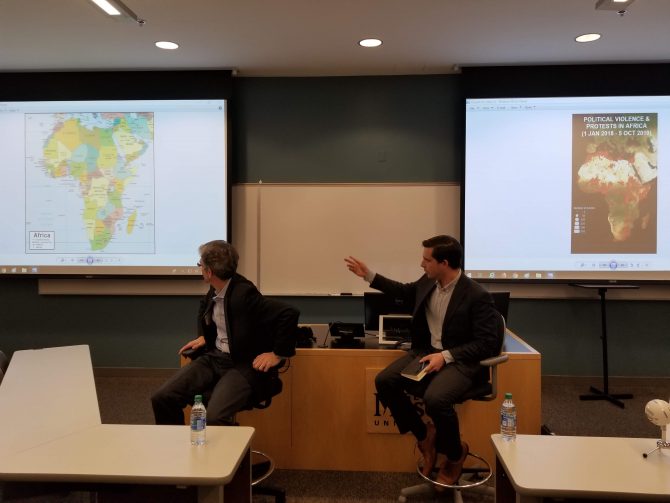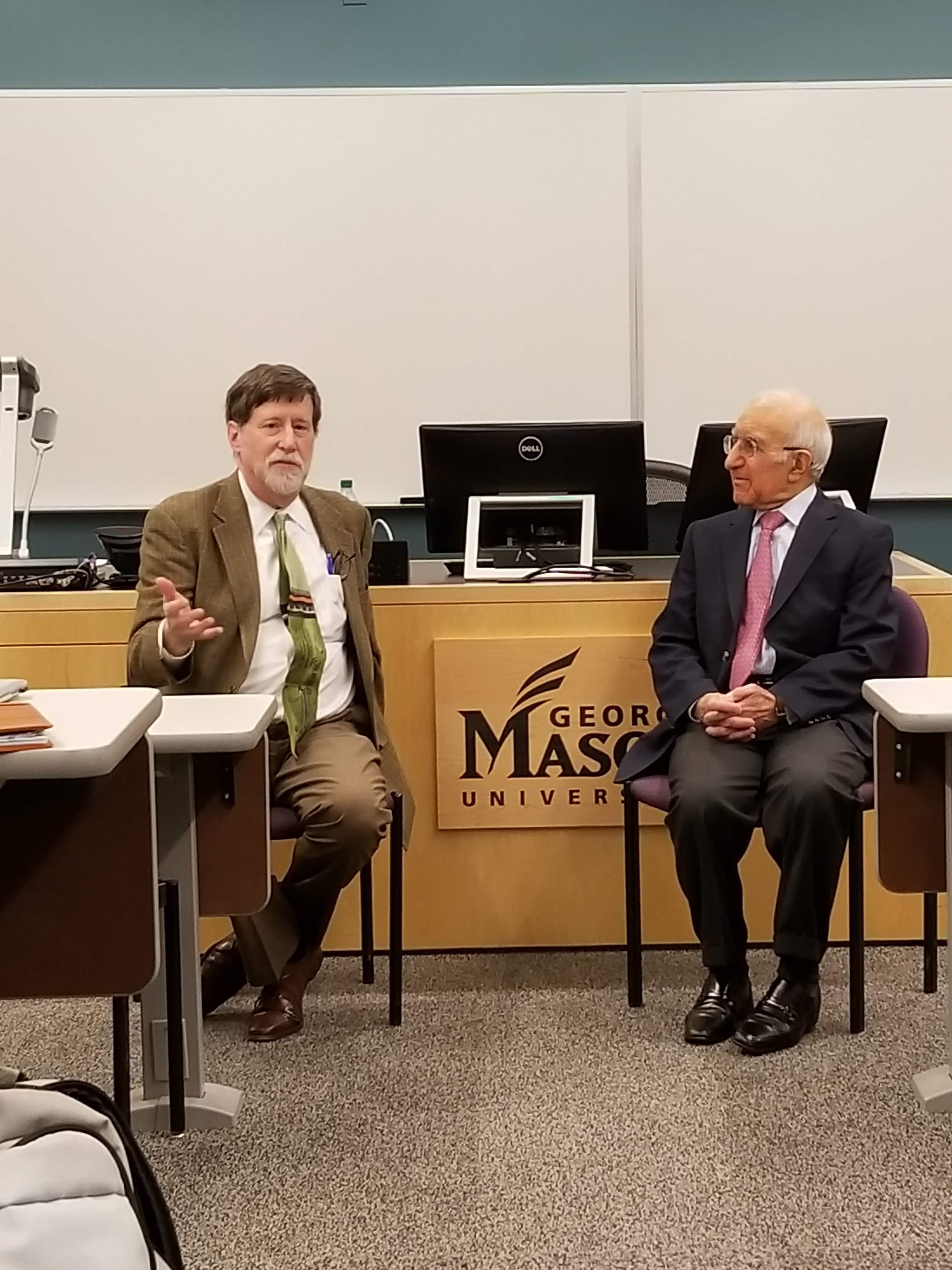CSPS Book Event
On March 7th, CSPS hosted Dr. George Hutchinson to present on his recent book North Korea’s Nuclear Decisions and Strategies: Sovereignty, Legitimacy, and the Bomb. The discussion was be moderated by CSPS Director Ellen Laipson, and included Dr. Soyoung Kwon and Dr. Greg Koblentz discussants.
Click here to listen to the conversation!
Intelligence Studies Consortium
On March 24, 2023, the Intelligence Studies Consortium convened its third symposium, entitled New Perspectives in Intelligence Studies. This year, George Mason’s Schar School of Policy and Government is hosted at our Arlington location. Assistant Secretary of the Treasury, Shannon Corless, gave a keynote address to start off the event. Attendees also enjoyed a lunchtime conversation with General Michael V. Hayden.
The symposium featured student presentations in four panels:
- Russia and China
- Violent Non-State Actors
- Emerging Technologies
- Transnational Challenges
Check back shortly to see a recording of it online.
CSPS Fellow and State Department veteran Eugene Fishel gave an incredible discussion on his book The Moscow Factor as well as current events with American-Ukrainian-Russian relations in March. GMU Professor Ed Rhodes and GMU graduate student Mariia Panga joined with insightful discussion on current events.
In February CSPS enjoyed author Mel Gurtov and his discussion on his book Engaging China to analyze the main themes and policy proposals on US-Chinese relations.
Crisis Simulation: Baltics 2028
CSPS hosted a Crisis Simulation on Saturday, October 15, 2022, entrenching about 45 students in a day long challenge full of foreign policy and strategy decisions designed to reflect a realistic crisis. An Estonian separatist state, backed by a Russian minority in the region, presented policy and military challenges for students to navigate in roles representing state actors. Students navigated the protection of individual rights, the defense of democracy, navigation of refugee crises, and protection of the energy grid.
Speaker Series: Is Taiwan Ready for War?
On October 11, 2022 CSPS hosted a panel discussing the question: is Taiwan ready for war? CSPS Assistant Director Mike Hunzeker moderated the discussion. To watch the event, please visit HERE.
Summer 2022
Our CSPS Faculty and Fellows had a busy summer! Here are a few highlights:
The Schar School and CSPS organized a week long study tour to Korea, and the CSPS-Korea branch, led by Professor Soyoung Kwon, hosted an important symposium on May 24, examining prospects for peace in the Korean peninsula. The week long course focused on the theme of the changing security landscape in Northeast Asia. In light of President Biden’s visit to Korea in May and the recent change of administration in Seoul, our study program was an exciting opportunity to examine the full suite of security challenges and policy debates. CSPS Director and former CSPS Fellow George Hutchinson lead the academic program, with important input from Mason-Korea faculty and distinguished Korean experts from diverse institutions. Visit the Mason Korea page HERE to read more about the symposium, or visit the CSPS-Korea event post on the symposium HERE.
In July, CSPS associate director Dr. Mike Hunzeker and CSPS alumnus Dr. Joseph Petrucelli ran a nuclear escalation simulation as part of the NATO Defense College’s 2022 Early-Career Nuclear Strategists’ Workshop. Now in its fourth year, this workshop fosters awareness and expertise of issues related to nuclear strategy among up-and-coming security scholars from across the alliance. Dr. Hunzeker and Dr. Petrucelli’s simulation asked/challenged participants to respond to an adversary’s use of a nuclear weapon as it tries to ‘escalate to de-escalate’ in the early stages of a conflict with the alliance.
CSPS Fellow Will Nelson spent the summer as a research fellow with the Indo-Pacific Command in Hawaii. He was awarded a Daniel Inouye Fellowship and will work on Asian military issues.
Gettysburg Staff Ride
On August 16, 2022, Schar undergraduate and graduate students visited Gettysburg, PA for a staff ride under the expert guidance of ret. Colonel Rob Abbott.
The Bicentennial of the U.S.-Columbia Relationship
March 29, 2022, in conjunction with TraCCC, CSPS and Schar featured Juan Carlos Pinzon, Ambassador of Columbia to the United States, for a discussion on opportunities for partnership and growth with the bicentennial of the U.S.-Columbia relationship.
Crisis Simulation Spring 2022: East China Sea Simulation
In March 2022 CSPS hosted its first in-person crisis simulation since the beginning of the pandemic. The simulation focused on a hypothetical international crisis in the East China Sea, featuring decision making role-play as government officials from the United States, Japan, and China. Over two dozen graduate and undergraduate students from across the Schar School participated in the simulation.
Russia’s War on Ukraine: Schar School Faculty Insights
On March 8, 2022, CSPS hosted a Schar “teach-in” event in conjunction with the Democracy Lab, International Relations Policy Task Force, and Undergraduate Research Community on Russia’s War on Ukraine. This event was a first-of-kind, hybrid Fairfax and Arlington campus event, with faculty and attendees present on both campuses connected via zoom. Professors Mark Katz, Janine Wedel, Michael Hunzeker, Eric McGlinchey, Desmond Dinan, Richard Kauzlarich, Ellen Laipson, and Anton Ligusha PhD student Mariia Panga all provided speaking points.
Round Table with Dr. Ki-Jung Kim
On December 1, 2021, CSPS hosted Dr. Ki-Jung Kim, President of the Korean Institute for National Strategic Studies, and his delegation of researchers, for a roundtable discussion with Schar School faculty and graduate students. Dr. Kim presented his analysis of peace efforts by the current Korean government towards North Korea. The visit was organized by Prof. Soyoung Kwon, Director of the CSPS branch at Mason-Korea.
THE MAKING OF CHINA’S “WOLF WARRIOR” DIPLOMACY
Hosted November 4, 2021, “The Making of China’s Wolf Warrior Diplomacy” was the latest session in CSPS’ Distinguished Speaker Series. The session featured Peter Martin, Bloomberg News Washington Correspondent and author of China’s Civilian Army: The Making of Wolf Warrior Diplomacy as the featured speaker, Dr. Ketian Zhang, assistant professor at George Mason University as the discussant, and Ellen Laipson, director of CSPS as the moderator.
Peter Martin’s book available for purchase HERE
Spring 2021 Crisis Simulation
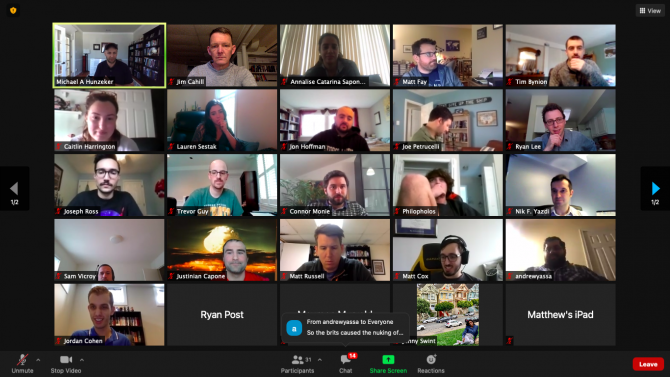
On April 23-24 2021, students from the Schar School of Policy and Government met virtually for CSPS’s semi-annual crisis simulation. This semester the NATO, Russia, and a Political-Military Crisis in the Baltic States simulation was refashioned to heighten tension and place students under greater pressure. The CSPS control cell split participants into six country teams that navigated three progressive “rounds” of a crisis designed to force participants to navigate escalation in the near future. Each team grappled with public diplomacy in the age of social media, political decisions in uncertain conditions, and military coordination with an alliance in jeopardy.
The challenge to participants peaked when a nuclear weapon was set off in Paris by an unknown actor, bringing the teams to the precipice of nuclear war. Impressively, the students were able to avert a catastrophe with admirable prudence and careful signaling. After the final round it was revealed- to much surprise- that the attack on Paris had resulted from a country team’s opening moves. The CSPS control cell and moderators enjoyed the dynamism brought to the revised exercise and eagerly anticipate the outcome of a new simulation to be hosted in Fall 2021.
Maritime Security After Suez
April 30, 2021
On April 30, students from the Schar School of Policy and Government convened virtually for CSPS’s final event of the semester. They explored how the vulnerabilities of the global supply chain can have repercussions for the security interests of trading nations and countries close to the supply routes. Interruptions in the Suez Canal last month, for example, had a real impact on the flow of trade, and the interests of dozens of countries and companies.
Monograph Launch: ‘Contests of Initiative: Countering China’s Gray Zone Strategy in the East and South China Seas’’
March 11, 2021
CSPS Semi-Annual Crisis Simulation: Fall 2020
On November 13-14, 2020, 31 students from the Schar School of Policy and Government (21 participants and 10 CSPS volunteers) convened virtually for CSPS’s semi-annual crisis simulation: NATO, Russia, and a Political-Military Crisis in the Baltic States. The players participated on one of six teams: Baltics-Poland, France-Germany, Turkey, U.S., U.K., and Red. Players navigated three progressive “rounds” of the simulation followed by a final debrief and discussion session. Strategic challenges emerged naturally – escalation management, decision making under uncertainty, alliance cohesion, signaling, credibility, and public diplomacy in the age of Twitter.
Drones and the Future of Chemical, Biological, Radiological, and Nuclear (CBRN) Threats
With Zak Kallenborn, Gregory Koblentz, and Nicole Thomas
Moderator: Ellen Laipson
March 26, 2021
A Conversation with Andrew McCabe, former Deputy Director of the FBI
With Michael Morell: Former Acting Director and Deputy Director of the CIA
Moderator: Ellen Laipson
Co-sponsored by the Hayden Center
The Coronavirus & its International Ramifications
On Feb 21, 2020 CSPS welcomed Dr. Stephen Morrison, Dr. Ashley Grant, and Dr. Ketian Zhang for a discussion on the security issues coronavirus poses, and the way that states can prepare for an outbreak.
Dr. Morrison, senior vice president at the Center for Strategic and International Studies and director of its Global Health Policy Center, discussed both China’s response to the crisis and the way the internaitonal community, the World Health Organization in particular, have worked together to combat the virus.
Dr. Grant, a biotechnologist and adjunct at GMU, gave the audience information about the coronavirus in particular, how contagious it is, what the scientific community does and does not know about it, and ways that governments and citizens can prepare for an eventual outbreak.
Dr. Zhang, an Assistant Professor of Intenraitonal Security at GMU, shared her personal experience, visiting Beijing over the holiday break. Zhang was under quarintine for ten days and caught the last flight back to the United States. As a regional expert in East Asia Zhang also shared how the virus has undermined Xi Jinping’s leadership.
The complete discussion is available on YouTube.
Norfolk Staff Ride
On the morning of November 23rd, twenty-seven George Mason graduate and undergraduate students participated in CSPS’s Staff Ride to Norfolk Naval Station for a full day of tours. During the bus ride, former Naval officers Doyle Hodges and Ryan Berry provided background knowledge to the students. Both discussed their personal experiences in the Navy and delved into the technical details of different classes of ships and the intricacies of landing an airplane on a postage stamp, as Ryan referred to the deck of an aircraft carrier. Students engaged in a discussion on the three broad missions of the Navy: power projection, control of the seas, and strategic deterrence. The tours of different ships would serve as manifestations of each mission on different platforms.
After the stage was set for the first tour and students prepared for the rigor of back-to-back tours. Starting with the Nimitz-class USS John C. Stennis (CVN-74) for a 90-minute tour, GMU’s students started in the hangar bays and snaked their way through the maze-like interior halls of the Stennis, eventually emerging atop the flight deck. Ryan, a former naval flight officer who served on EA-6B Prowlers during his time in the Navy, went into careful detail to explain the processes and perils of launching and recovering aircraft on the high seas. As an unplanned addition, students were able to look across the pier to a recent arrival to Norfolk – the HMS Queen Elizabeth (R08) and the F-35 parked onboard. After touring the bridge and a tribute-like room to the ship’s namesake, Senator Stennis, the group disembarked and prepared for the next tour: for half the group, a destroyer; for the other half, a submarine.
The USS Nitze (DDG-94) is an Arleigh Burke-class destroyer commissioned in 2005. Its missions and corresponding capabilities range from antisurface warfare (ASuW) to antisubmarine warfare (ASW) and from strikes on land with Tomahawk cruise missiles to surface-to-air defenses at sea. The group saw the Nitze’s missile cells, close-in weapons system (CIWS, pronounced SEE-WIZ), 5-inch gun, bridge, and even the mess hall where college football games demanded the attention of off-duty sailors. Doyle’s previous experience commanding the USS Ross (DDG-71) was invaluable as the Nitze’s tour guides showed students the different facilities and components of their ship.
As we got to the final pier for the tour of the Virginia-class USS New Hampshire (SSN-778), we quickly understood this to be a more sensitive area for tourists. Security felt more stringent, and we were asked to relinquish our cell phones as soon as we made it through the gate. As our 15-student groups were cut again by half, we proceeded down the first ladder and into the New Hampshire. Descending at a vertical angle into the sub, students quickly came to appreciate the realities of life aboard a platform designed to conserve maximum amounts of space. The layout was shocking to those of us who had never set foot in a submarine: narrow hallways, small berthing areas, and near vertical sets of stairs. However, we quickly were in awe of many of the features on the New Hampshire which distracted us from the cramped space. Among many other areas, students walked through the “magazine” of the sub where torpedoes are loaded into tubes to be launched and toured the control room or “con” showcased in every submarine movie (including Crimson Tide, which was viewed on our return trip).
CSPS is thankful for all of the military servicemembers who made our day of tours possible. Despite the long hours and a gloomy, rainy afternoon, the enthusiasm of Norfolk’s naval personnel and active engagement of the students made all the travel worth it. We hope to return soon with a new batch of eager GMU students!
Africa’s Security Challenges: Is the Situation Improving?
On October 18, 2019, Dr. Philip Martin – an Assistant Professor of International Security at the Schar School of Policy and Government at George Mason University, and Eric Schmitt – a senior writer covering terrorism and national security for The New York Times, met to explore the status of Africa’s wars, and efforts to build greater security capacity in this critical region. Dr. Phillip Martin begun the discussion, outlining the fact that Africa accounts for 30% of all Islamic State’s violence. Dr. Martin then discussed intercommunal conflicts, political protests, and long-term conflict resolution. Mr. Schmitt discussed European and American special forces “Operation Flintlock”, the current conflict in Burkina Faso, and the ongoing issue in Libya. Mr. Schmitt then went into a discussion of AFCOMM, and its relations with the current administration. The discussion was concluded with questions on non-military approaches to the security challenge, competition/collaboration between Russia and China in the region, blanket amnesty and the need for security forces, concluding with a significant discussion on the importance of police forces in the region.
Along the US-Mexican Border

October 10, 2019 – The U.S.-Mexico border has been the site of intense scrutiny recently, with attention focused on asylum seekers from Central America and the separation of families while their cases are processed. It was in this context that Dr. Guadalupe Correa-Cabrera, a Schar School Associate Professor, traveled the entire U.S.-Mexico border earlier this year, entering and exiting through all of the more than 40 border crossings between the two countries. Dr. Correa-Cabrera gave a presentation to undergraduate and graduate students about this experience, which covered topics of immigration, security, indigenous people, economics, and culture in the border region.
Many migrants underestimate the difficulty they will encounter once in the country. In response to a question from the audience, Dr. Correa-Cabrera poignantly described how many migrants, upon arriving in the United States, realize that it is not the so-called promised land that they might have been led to believe. But as long as conditions in their home countries persist, migrants will continue making the journey to the border, shaping it in ways that reflect their unique cultural contributions.
Site Visit at Norfolk
On August 23, 2019, Dr. John Gordon, a CSPS affiliate faculty member and adjunct professor at George Mason University, took a group of current and former Schar School/CSPS students on a tour of Naval Station Norfolk, the largest naval base in the world, to see firsthand the inside of an aircraft carrier and attack submarine. As if to emphasize just how much naval history lies within and around the area, Dr. Gordon pointed out the rough site of the famous Civil War Battle of the Monitor and Merrimack as the group approached the City of Norfolk.
The first stop was the USS Dwight D. Eisenhower, a Nimitz-class nuclear-powered aircraft carrier in service since the 1970s. Once on board the Eisenhower, the group was escorted through a labyrinth of hallways, going up and down steep staircases until finally arriving on the flight deck, where aircraft are catapulted into the air and land with the help of arresting wires. There were no planes on the flight deck that day because the various squadrons and detachments that make up the air wing are usually only present when the ship is deployed. But this made the scale of the flight deck look that much more expansive, and even more so from the atop the bridge. The tour concluded with a look at the berthing quarters— where the sailors sleep—in bunk beds stacked three on top of each other.
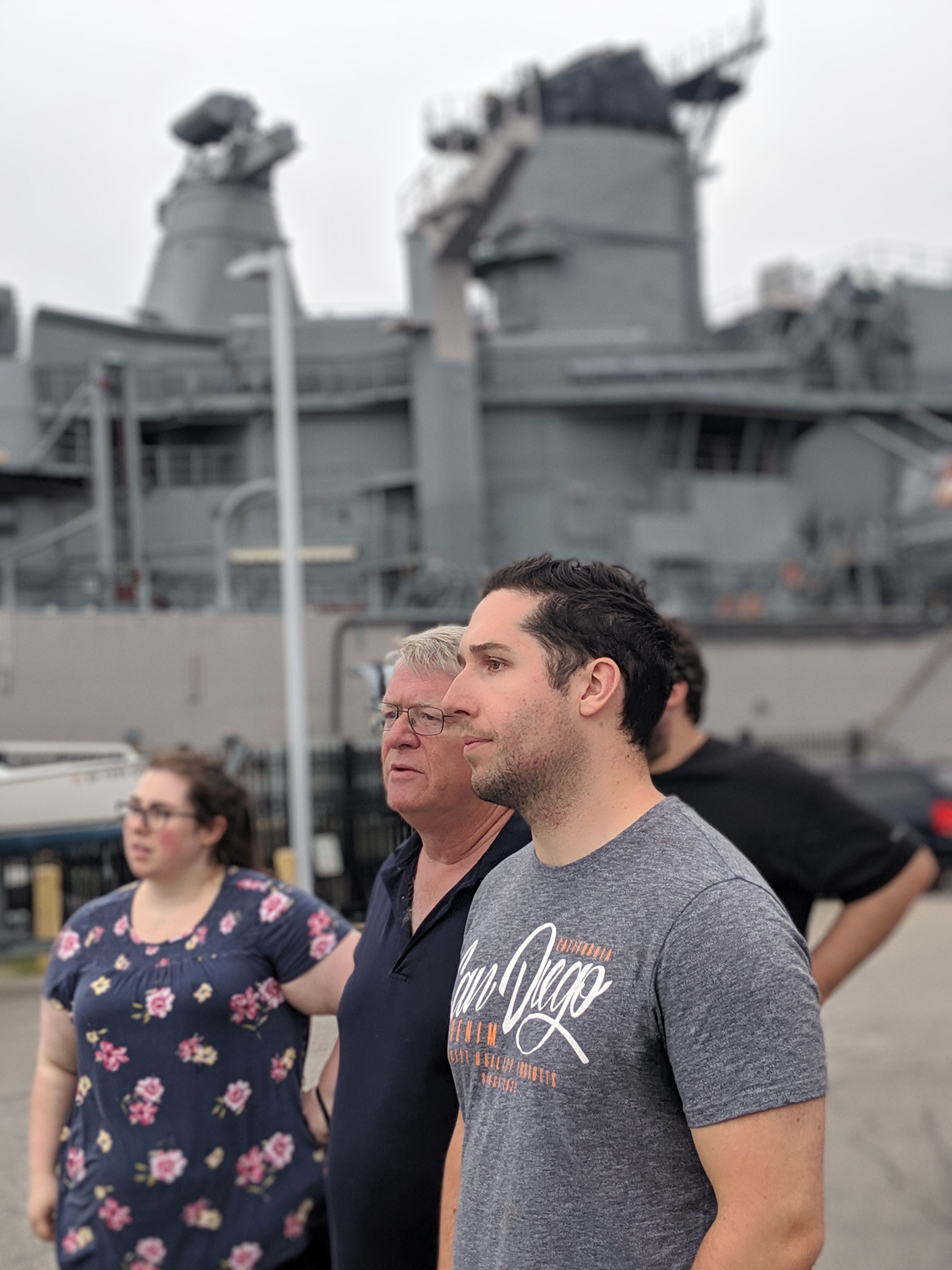
Next, the group got a special tour of the Virginia-class attack submarine USS John Warner. Boarding the submarine required nimble feet as the students had to walk on the hull before descending down the hatch into the tight spaces below. Because room is obviously very limited, every inch of space has a purpose—whether for storage or function. The sleep accommodations on the submarine made those on the Eisenhower look downright luxurious by comparison. There were some comforts, however: an ice cream machine and a sizable collection of DVDs, to pass the time on months’ long deployments. The potentially dangerous situations that the crew is expected to encounter were thrust into stark relief when the tour was led to the torpedo room, where some of the (lower-ranking) sailors sleep in close proximity to the launching tubes.
CSPS looks forward to sponsoring more trips for students and fellows in the coming academic year.
CSPS-Korea Hosted International Security Symposium
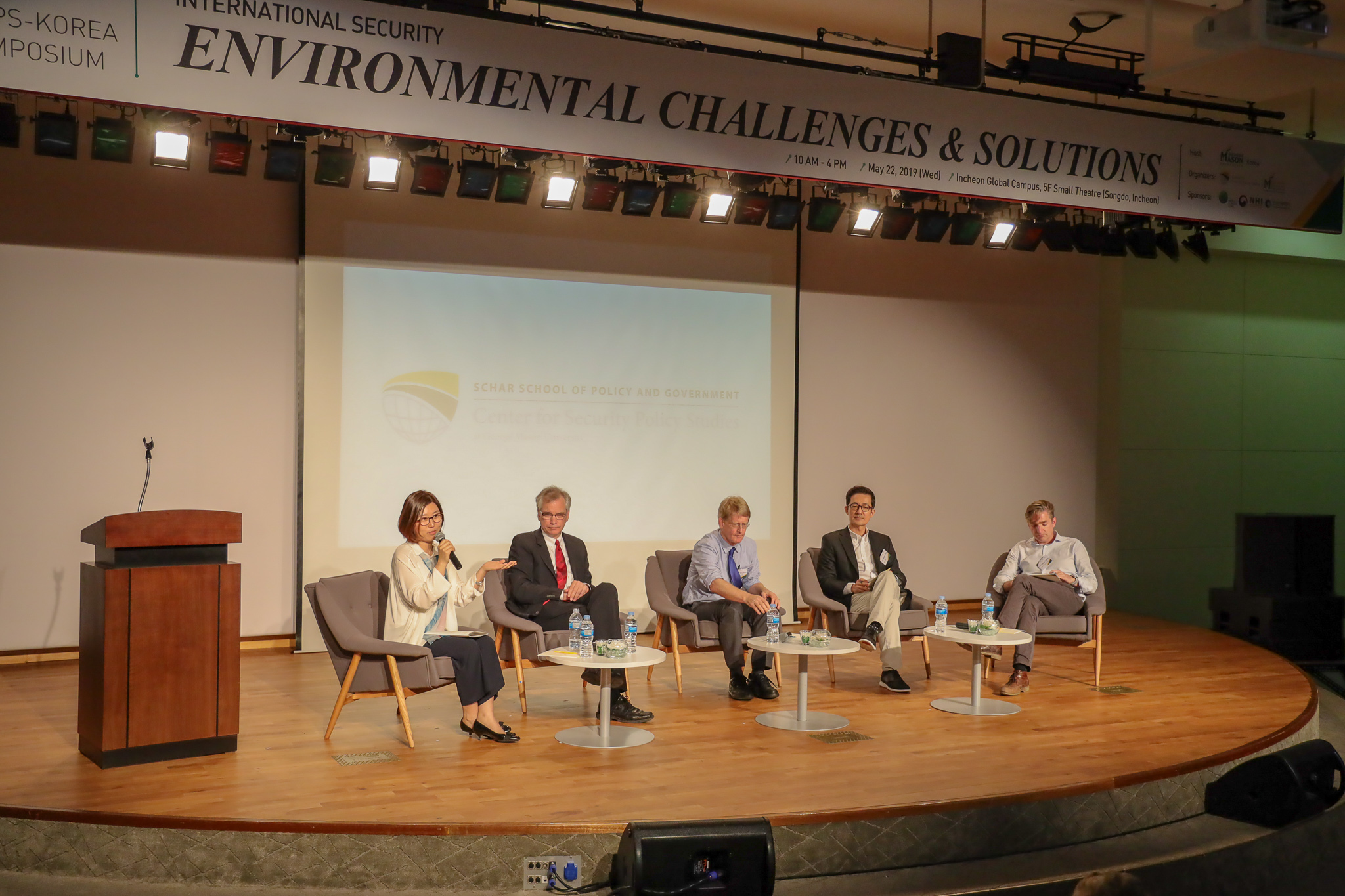
In May the Korean branch of CSPS hosted an international security symposium that emphasized Environmental Challenges and Solutions. The Symposium addressed such issues as the effects of the tsunami on the Fukushima nuclear energy plant, the importance of developing global solutions, and the role of major states in shaping the landscape of climate issues.
A report on the conference is available here.
Speakers at the symposium included Dr. Taedong Lee of Yonsei University, Dr. Eunjung Lim of Ritsumeikan University, Dr. Simon Wilson of the Green Climate Fund, and GMU Professors Dr. Ming Wan, Dr. Andrew Light, Dr. Changwoo Ahn, and Dr. Todd M. La Porte.
Annual Gettysburg Staff Ride
On April 27th, 2019 CSPS hosted its annual tour of the Gettysburg Battlefield where GMU students and staff will walked the battlefield. Topics of discussion emphasized the impact that leadership characteristics play in outcomes both in times of war and peace.
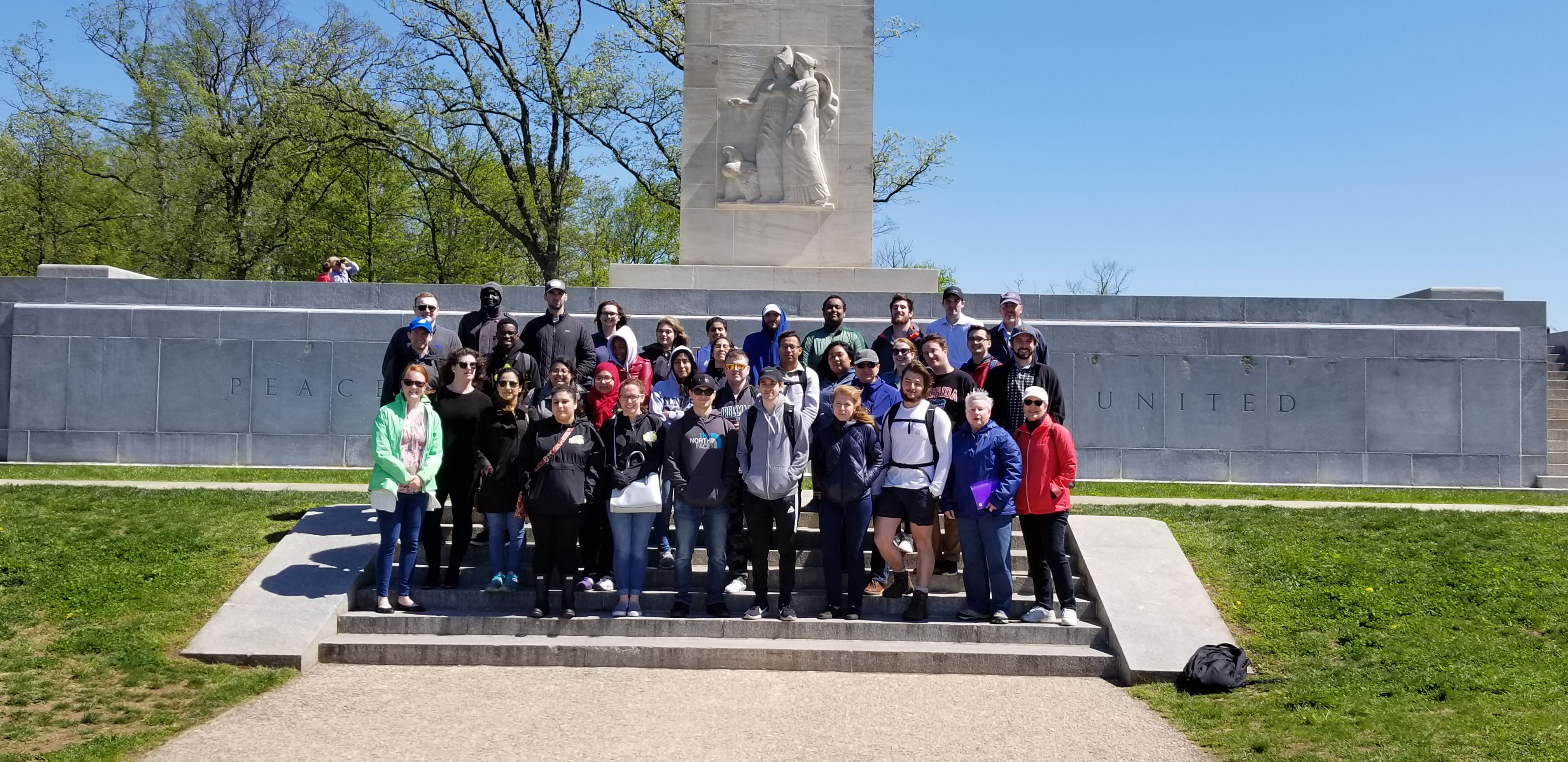
The Future of US & Taiwan Relations
On February 27, 2019 GMU Professor Gerrit van der Wees, Mr. Ian Easton from Project 2049, and GMU Professor and CSPS Associate Director Michael Hunzeker discussed the relationship between the US and Taiwan. Dr. Van der Wess outlined the history of Taiwan and the tensions that emerged between China, the US, and Taiwan. Mr. Easton explained the importance of the Chinese and Taiwanese relationship in the future of the international community, and the impact they are likely to have, especially on the US. Dr. Hunzeker than presented the work detailed in a collaborative CSPS monograph, on ways Taiwan can prepare for a potential Chinese invasion.
Reflections on the 40th Anniversary of the Iranian Revolution
In February CSPS welcomed Professor Shaul Bakhash, who spoke on the Iranian Revolution and the lasting impacts it has had.




